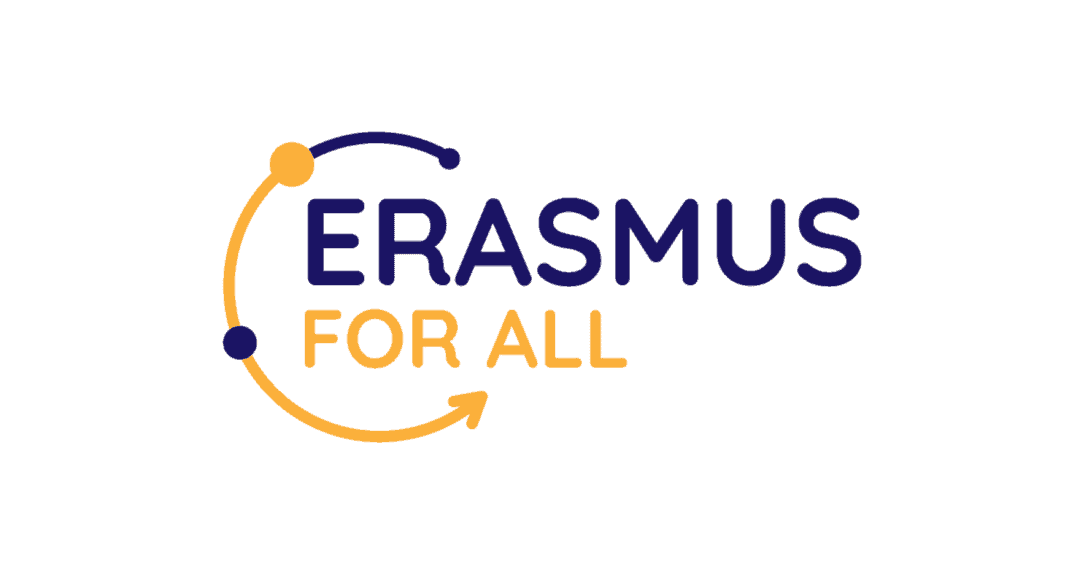The “Erasmus for All” project aimed to tackle the low levels of HE student participation in Erasmus mobility exchange by proposing a more economically viable scholarship scheme that would allow any HE students to spend part of their studies abroad in any of the 33 programme countries.
Active years: 2021-2024
Funding: Erasmus+ Key Action 2 – Cooperation partnerships in Higher Education
Project budget: 399,295 euros
Length: 3 years
Partners: 8
The Erasmus for All project, now concluded, aimed to address the limited participation in the Erasmus programme, which, since its inception in 1987, has involved only 1.7% of the European Union’s population. This low engagement is largely attributed to the insufficient financial capacity of students and their families, leading to inequitable access to quality higher education and future employment opportunities.
Although the budget allocated under Key Action 1: Mobility of Individuals typically enables Higher Education Institutions (HEIs) across Europe to meet existing demand, the financial support provided often falls short of covering students’ basic expenses in their destination countries. This shortfall renders the programme inaccessible to many HE students.
The project’s objectives were to:
- Develop a shared understanding among key stakeholders regarding the desired evolution of the Erasmus+ grant system;
- Engage with policy and decision makers on resource allocation strategies to broaden participation in mobility;
- Maintain inclusion and equity as central topics on the policy agenda.
- Provide in-depth input for the mid-term review of the new Erasmus+ programme.
To achieve these goals, the Erasmus for All consortium implemented several activities, culminating in a series of impactful deliverables:
- In-Depth Analysis on Mobility Funding in Erasmus and Beyond: This report maps mobility scholarships across Europe, offering a detailed analysis of Erasmus+ and other funding schemes. It incorporates conclusions from Student Social Labs, which gathered student perspectives on the current Erasmus+ grant system, and reviews previous initiatives addressing similar issues.
- A Manifesto for Equity and Inclusion in Student Mobility: Highlighting the barriers faced by students from lower socio-economic backgrounds, the manifesto calls for a grant system that reflects city-level costs rather than national averages. It emphasises the need for a more inclusive approach to ensure all students can access life-changing mobility opportunities.
- Removing the Main Obstacles to European Student Mobility: This report examines how to enhance the Erasmus+ mobility grant calculation system to make mobility more inclusive. It discusses key mobility and grant challenges, introduces potential calculation systems to address these barriers, and outlines the Erasmus for All proposal for a more inclusive framework. Additionally, it details implementation requirements, future steps, and insights from higher education stakeholders.
- Piloting a More Inclusive Erasmus+ Grant: Impact Study: Conducted during the 2023/2024 academic year, this study compared students using the current Erasmus+ grant system with those testing the new “Erasmus for All (E4All)” proposal. Experimental group participants received predefined top-ups, enabling a comparative analysis of the revised methodology’s impact. The findings offer critical insights into the potential benefits of the E4All proposal for future student mobility initiatives.
- Erasmus for All Policy Recommendations: This document outlines the journey and outcomes of the Erasmus for All partnership providing actionable recommendations for stakeholders, advocating for an equitable and sustainable future for Erasmus+.
Partners: University of Porto, Université de Versailles Saint-Quentin-en-Yvelines, Università Degli Studi di Roma La Sapienza, University of Pécs, Trinity College Dublin, European University Foundation, European Students’ Union, France Universités.

